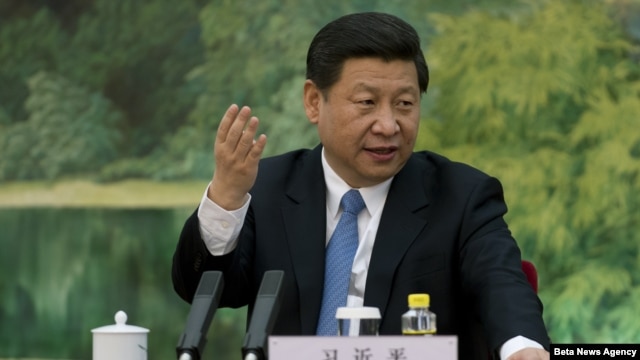Wehrwolfen
Senior Member
- May 22, 2012
- 2,750
- 340
- 48
By Barbara Demick,
March 5, 2013
Xi Jinping, China's new Communist Party secretary, will add the title of president at the end of the annual gathering of the National People's Congress, which opens Tuesday. The corruption trial of his purged rival, Bo Xilai, is expected shortly after.
Even as their fates have diverged sharply, the stories of their famous and powerful families have dominated Chinese political chatter for the last year. They have focused scrutiny on the country's "princelings," the sons and daughters of party or government officials, fostering a potent form of resentment in Chinese society.
Including Xi, six of the seven men tapped in November for the Politburo Standing Committee, the highest ruling body in the Communist Party and thus China, are the sons of such officials.
The phenomenon is not confined to China. The close relatives of past leaders have risen to the top in Japan, the Philippines, Malaysia, India, Singapore and both Koreas. But the phenomenon is more jarring in a communist country, where equal opportunity is the bedrock of the ruling ideology.
The fact that there are no free elections leaves the party elders vulnerable to accusations that they have merely perpetuated China's dynastic traditions by handing down power within a "red nobility." The privileges of birth extend to every sector of the economy, be it oil, electric power, insurance or even diamonds.
(Excerpt)
Read more:
In China, 'red nobility' trumps egalitarian ideals - latimes.com
Sounds a lot like the Democratic Party dynasties are going through.
March 5, 2013
Xi Jinping, China's new Communist Party secretary, will add the title of president at the end of the annual gathering of the National People's Congress, which opens Tuesday. The corruption trial of his purged rival, Bo Xilai, is expected shortly after.
Even as their fates have diverged sharply, the stories of their famous and powerful families have dominated Chinese political chatter for the last year. They have focused scrutiny on the country's "princelings," the sons and daughters of party or government officials, fostering a potent form of resentment in Chinese society.
Including Xi, six of the seven men tapped in November for the Politburo Standing Committee, the highest ruling body in the Communist Party and thus China, are the sons of such officials.
The phenomenon is not confined to China. The close relatives of past leaders have risen to the top in Japan, the Philippines, Malaysia, India, Singapore and both Koreas. But the phenomenon is more jarring in a communist country, where equal opportunity is the bedrock of the ruling ideology.
The fact that there are no free elections leaves the party elders vulnerable to accusations that they have merely perpetuated China's dynastic traditions by handing down power within a "red nobility." The privileges of birth extend to every sector of the economy, be it oil, electric power, insurance or even diamonds.
(Excerpt)
Read more:
In China, 'red nobility' trumps egalitarian ideals - latimes.com
Sounds a lot like the Democratic Party dynasties are going through.


